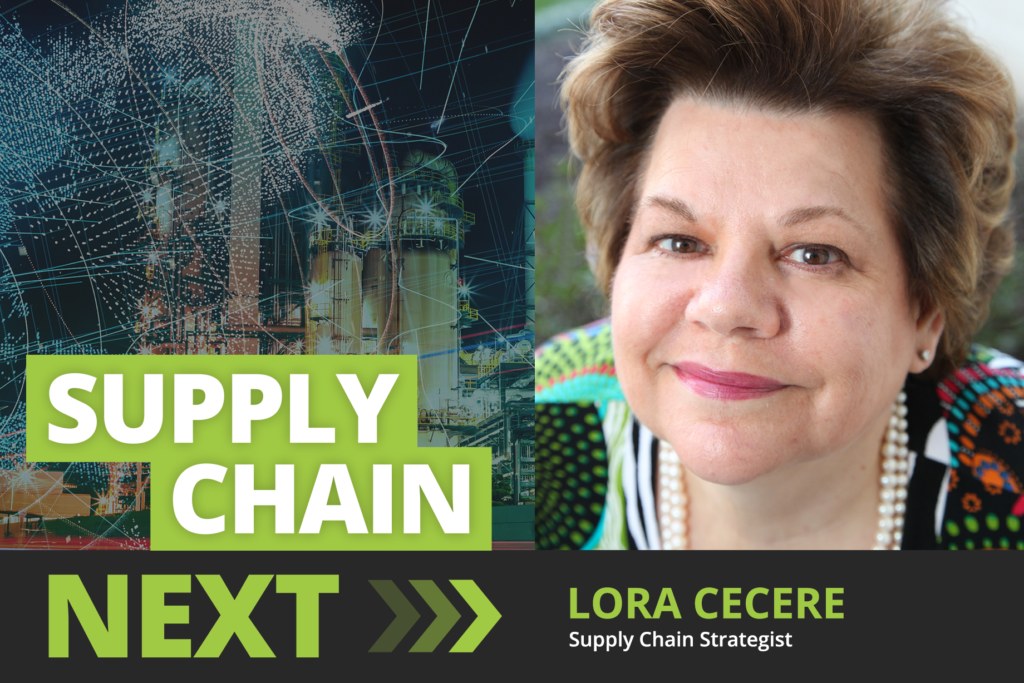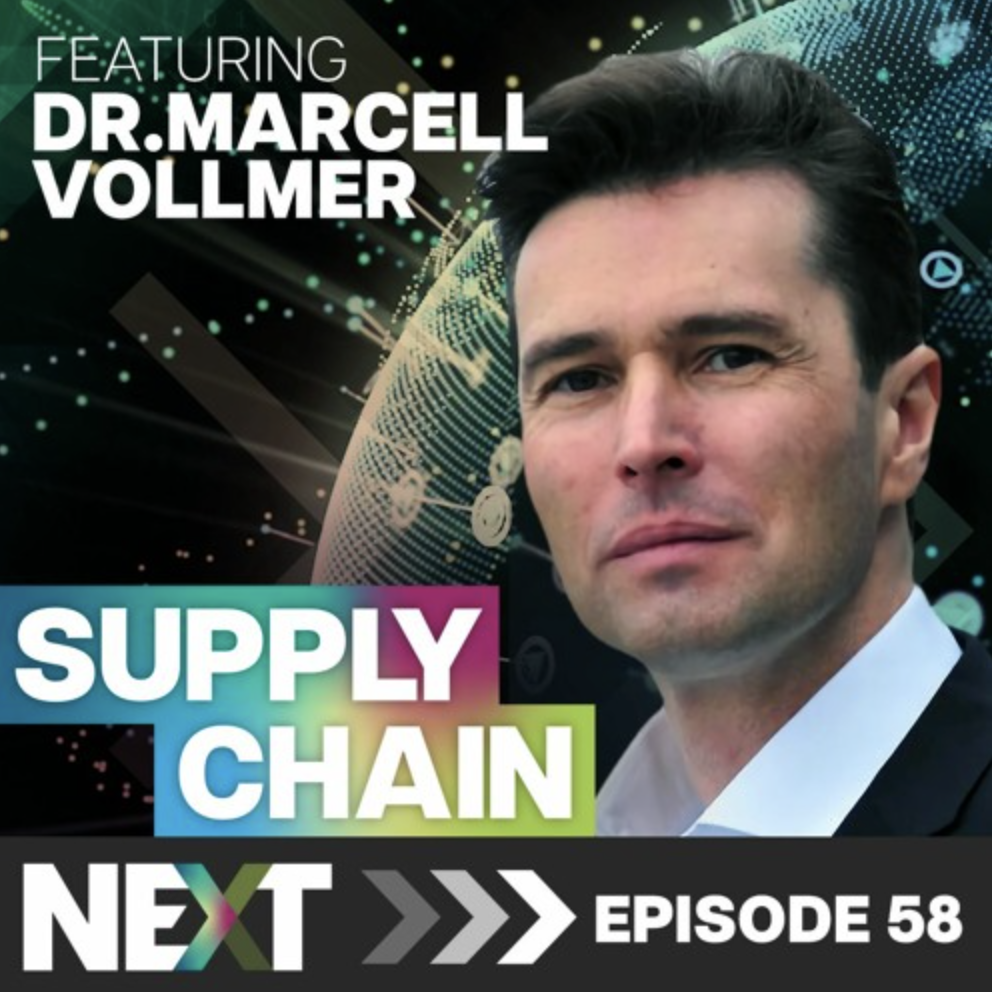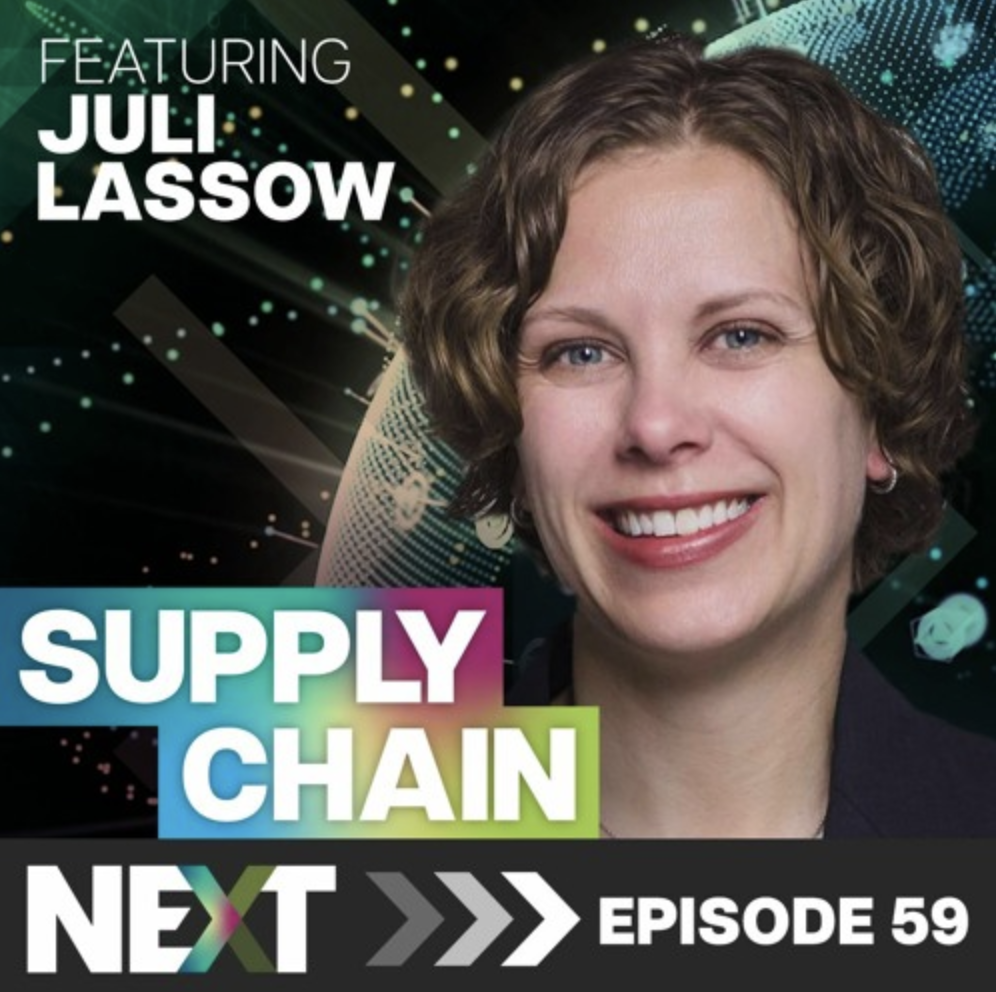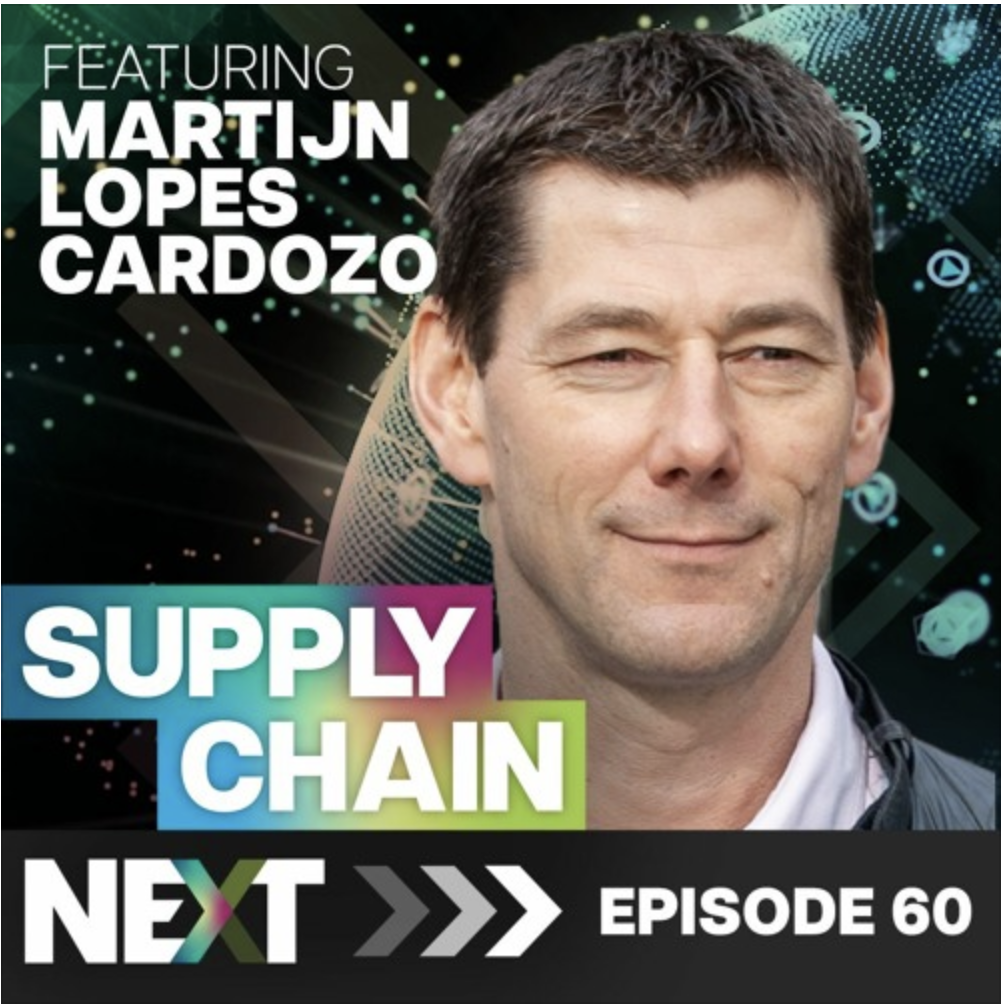Episode 9
Podcast: Supply Chain Strategist Lora Cecere on Supply Chain Transformation in Response to COVID-19
Enterprise strategist and analyst Lora Cecere has over 35 years of experience in a variety of roles in supply chain. On this episode of Supply Chain Next, Lora talks with host Richard Donaldson about the fallout in the marketplace from COVID-19, how it’s affecting supply chains, and what businesses can do to recover.

Highlights from the Conversation
The direction of global supply chain before and after COVID-19
- Supply chain means different things to different companies. For more forward-thinking companies it may mean everything in the supply-make-deliver continuum. For laggards it may mean the layer between manufacturing and logistics.
- The pandemic has created a double whammy through shutdowns and economic downturn.
- COVID-19 will mean the redefinition of supply chain and going beyond efficiency to resiliency.
- There will be a time of scarcity that will require a lot of realignment.
What will drive the transformation of supply chain?
- As a supply chain community, we’ve talked about digitization, but for most companies they’ve just made existing systems faster, not more efficient.
- Supply chain must start with demand, answering the questions “what should our company be?”, “what do we deliver?”, and “what are our delivery channels?”.
- For example, with the rise in demand of online grocery shopping, only 40% of orders on Instacart have been delivered. Demand is changing because we won’t be ordering meals in restaurants for a long time, and as a result our inventories are now wrong. We need to redesign these supply chains to deliver what consumers want.
- Safe manufacturing capacity must be brought into alignment with this new demand, and the restart time for this will need to be factored in.
- We’ve designed our logistics infrastructure for frictionless movement from state to state. But now we have pandemic hot spots, and containers are being cancelled at a time when we should be ordering for the holidays.
- We now have supply chain black holes, where we don’t have visibility.
- Get ready for constant surprise and disruptions for the next six months. Our supply base is now fragile, and we’ll see bankruptcies and quality issues.
- Most companies rely on portals and aren’t very good at transferring demand signals to our suppliers. We’ve got to work more closely with our suppliers and shippers.
- I recommend that companies develop two teams:
- An operational team that will work on demand triage.
- A recovery team to work on how to deal with the next time something like this happens.
What are the common themes that help companies move towards a value network?
- There has been too much movement from the inside out, instead of from the outside in.
- The former is characterized by trying to make enterprise resource planning systems (ERP) systems work.
- The latter, which is what we need now, is about sensing and learning. First you need time to sense, then time to translate, then it becomes time to act.
- We’ve focused on reducing the cost of IT but not on looking at advanced analytics to and making it work.
- I find cloud-based open source analytics capabilities encouraging.
- I am discouraged by older technologies that structure data in rows and columns.
- Outside-in processes requires interoperability, and this has to start with win-win value propositions. Right now we have too many win-lose transactions without data sharing.
- We need to stop talking about value networks and start delivering real value networks.
How does the supply chain organization change and adapt?
- The problem is that organizations are full of functional thinking.
- We’ve invested in sales to make it more efficient. Same thing with marketing.
- But we haven’t invested in making it work from the customer on back.
- The situation we’re in will highlight the need to think about supply chain processes that are not effective.
- To accomplish this goal, new business leaders will step up in ways we won’t expect. This will happen naturally, as they are responsible for delivering earnings.
- Within the organization, a new set of supply chain leaders will step up with the knowledge and courage to question the status quo.
What qualities will these new supply chain leaders have?
- They are problem solvers and good communicators. They are good at math, and good at pattern recognition.
What will the new digital value network look like?
- We were slow to define B to B connectivity through digital. Most of our signals happen through electronic data interchange (EDI), but most of the systems are old, slow, and make it difficult to respond.
- What we need in a new system is something bidirectional, with minimal latency, to drive signals across connected sources that will allow companies to deliver together. It MUST have interoperability, and allow us to see the processes. If it uses blockchain, it will be peer to peer, private, and permissioned.
- Value networks start with relationships, win-win value propositions and multi-tiered capabilities, not the traditional win-lose scenarios.
- Think about global warming, and how 40% of trucks drive empty.
- This pandemic is a driving force, telling us that maybe we should work together.
Read More on Post-COVID-19 Economic Recovery on Lora Cecere’s Blog >
Listen to More Episodes of Supply Chain Next >
About Lora Cecere
Lora Cecere earned a BSc in chemical engineering at a time when women weren’t supposed to be in science or math. She has over 20 years’ practical experience in supply chain, and got her start in the field thanks to a great mentoring program at Proctor & Gamble. Her talents then took her to Kraft/General Foods, Clorox, and Dreyer’s Ice Cream, where she worked on direct-to-store delivery systems. She also worked on supply chain software development for Manugistics, helping to drive a more business-oriented perspective.
As a supply chain analyst, Lora first worked for Gartner, and then moved to AMR Research, looking for more of a supply chain focus. After AMR was bought by Gartner, Lora founded Supply Chain Insights to provide strategic guidance to business leaders who share her goal of driving interoperability and creating value networks.
She has authored or co-authored two books and is a regular supply chain columnist for Forbes, CSCMP Quarterly, and Consumer Goods Technology. Today, Lora shares her insights through her podcast and her blog, Supply Chain Shaman.
Connect with Lora Cecere on LinkedIn >
More Episodes
You can listen to our audio tracks and read highlights for each episode below.
We’ve also started publishing video episodes on our YouTube channel.
058 – Dr Marcell Vollmer – Tech in Supply Chain, and the Sustainability Shift
Supply Chain Next · 058 – Dr Marcell Vollmer – Tech in Supply Chain, and the Sustainability Shift Meet Dr. Marcell Vollmer Dr. Marcell Vollmer, a renowned expert in the fields of digitalization, innovation, and sustainability. Marcell is a sought-after speaker and author that has dedicated his career to helping companies and individuals navigate the rapidly…
059 – Juli Lassow – Revolutionizing Retail, Sustainable Strategies, & the Future of Partnerships
Supply Chain Next · 059 – Juli Lassow – Revolutionizing Retail, Sustainable Strategies, & the Future of Partnerships Juli Lassow ,founder of JHL Solutions Meet Juli Lassow Juli Lassow, an accomplished retail professional, speaker, writer, and sustainability advocate, is the founder of JHL Solutions, a consultancy focused on creating outstanding private-label partnerships. With a deep…
060 – Martijn Lopes Cardozo – Circular Supply Chain
Supply Chain Next · 060 – Martijn Lopes Cardozo – Circular Supply Chain Martijn Lopes Cardozo, CEO at Circle Economy Meet Martijn Lopes Cardozo Martijn, a seasoned entrepreneur, has an impressive track record of establishing prosperous ventures within the realms of software, mobile, and digital media in California. Upon returning to the Netherlands, he…



